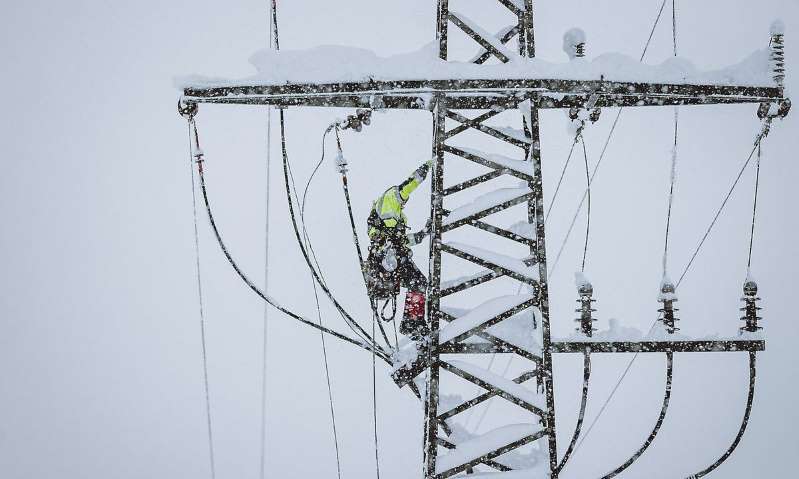
For many households, the electricity bill is slightly higher at the beginning of the year than it was a year ago. The main reasons for this are increased network costs as well as taxes and fees, according to data from the regulatory authority E-Control. Wholesale electricity prices have now recovered after a slump at the beginning of the corona pandemic.
Around a third of the electricity bill consists of the following parts: the pure energy price – a change of provider is possible here – the network tariffs, which depend on the location, as well as taxes and charges, such as those for green electricity subsidies. For an average Austrian household with an annual consumption of 3,500 kilowatt hours, the electricity bill in January was 797 euros, 3.4 percent more than a year ago. However, there are significant regional differences between the individual state energy suppliers. The bandwidth for an average household ranges from 915 euros in Carinthia to 686 euros in Vorarlberg.
The energy price remained largely stable. Some providers have increased it, for example in western Austria and also smaller suppliers, said Johannes Mayer, head of the economic department at E-Control, about the APA. Wholesale electricity prices collapsed at the beginning of the corona pandemic and were very low for almost half a year. From the end of the third quarter, however, they recovered and were roughly at the previous year's level in January. Mayer expects rather stable wholesale prices.
Network costs increased
The network costs were increased mainly because of the increased investments by the operators; they are set by the regulatory authority. They had fallen for a long time, now there is a wave of investments, said Mayer. The highest network charges are currently at the Carinthian state energy supplier, the lowest in Vorarlberg. They depend on the location of the customer and do not change if you change the electricity supplier.
According to E-Control, the green electricity tax for an average household with an annual consumption of 3,500 kilowatt hours (kWh) will rise to around 111 euros this year, after 93 euros in 2020. The amount depends largely on the wholesale electricity prices, says Mayer. The green electricity subsidy balances out the difference between the market price and the so-called feed-in tariffs that the plant operators receive.
For the state energy suppliers, the pure energy prices in January were largely unchanged compared to the previous year – there were increases here only in Tyrol and Vorarlberg. VKW and Tiwag had the lowest electricity bills for an average customer with an annual consumption of 3,500 kWh despite an increase of more than 9 percent. The network costs rose the most in Burgenland, followed by Lower Austria, Vienna, Carinthia and Vorarlberg.
In Carinthia, the electricity bill (as of January 2021) at the state energy supplier for an average household is 915 euros, an increase of 5.3 percent. Behind were Burgenland with 833 euros (plus 4.6 percent), Upper Austria with 831 euros (plus 2.4 percent), Styria with 809 euros (plus 2.8 percent), Vienna with 805 euros (plus 5 percent), Lower Austria with 793 euros (plus 3.3 percent), Salzburg with 760 euros (plus 2.8 percent), Tyrol with 741 euros (plus 9.6 percent) and Vorarlberg with 686 euros (plus 9.5 percent).
VKI starts campaign to change provider
The Association for Consumer Information (VKI) has on
Monday is now the tenth campaign to save
Energy costs started. The consumer advocates are organizing again
a best bidder process for the joint purchase of gas,
Green electricity and particularly sustainable “eco-label electricity”.
Interested parties can register without obligation until March 31st
Register at www.energiekosten-stop.at.
On April 13, the VKI wants the winners of the best bidder process
announce that from the beginning of May the participants will be given information
the tariffs and the expected savings. you
you then have around six weeks to switch provider
to decide. A price guarantee is provided for all community rates
of 18 months apply. In the previous actions, the
participating households reduce their energy expenditure by over 40 million euros
can lower, said the VKI on Monday.

